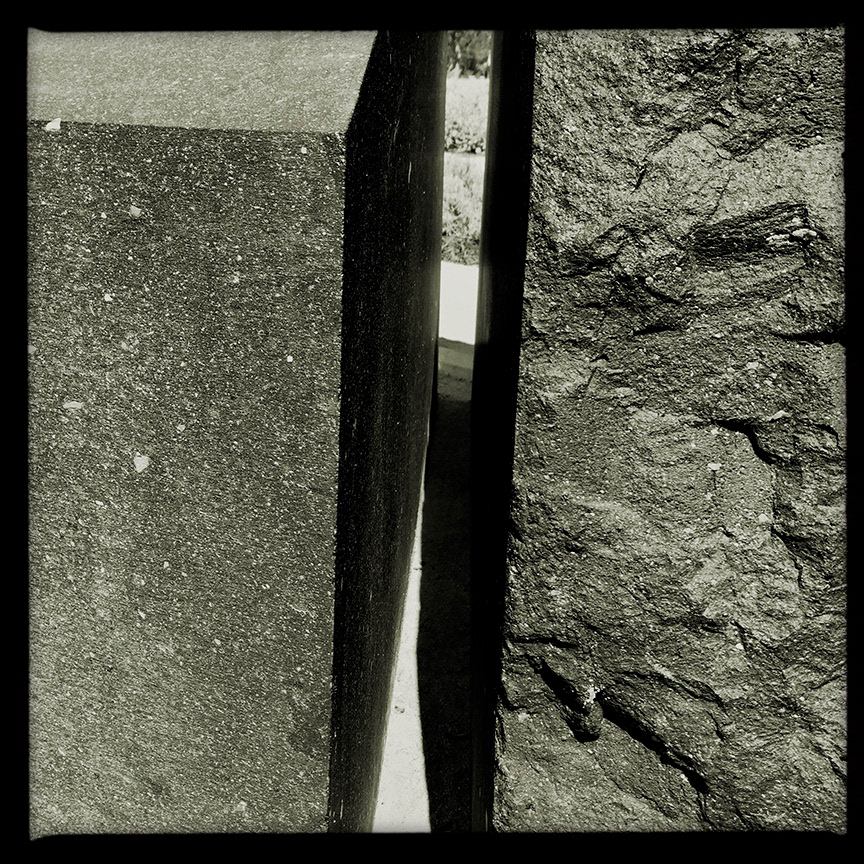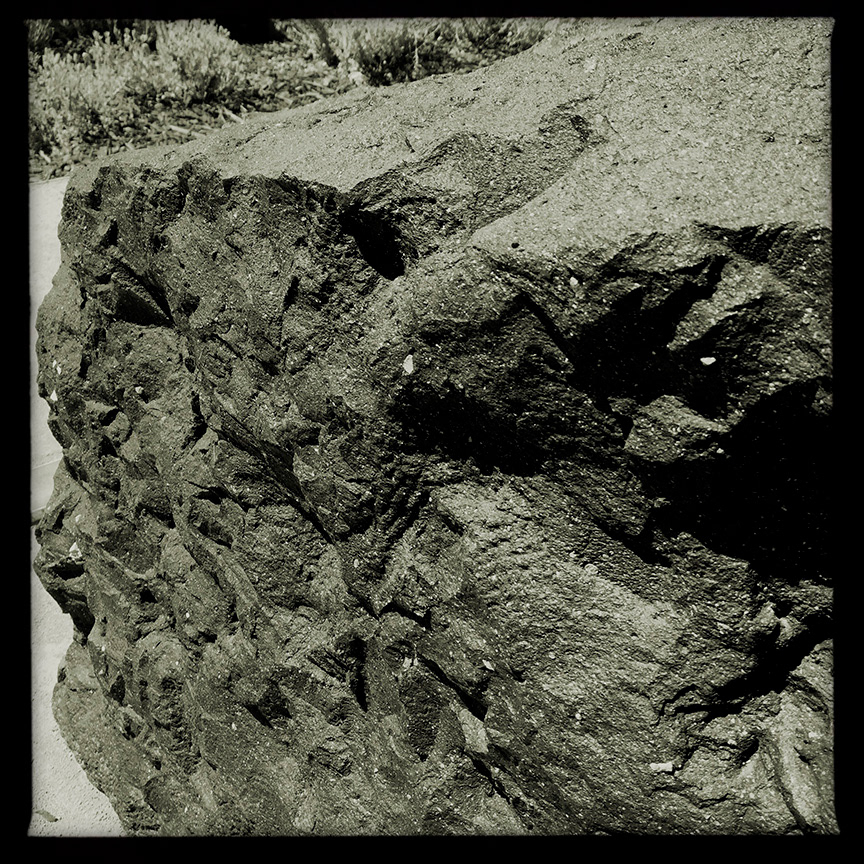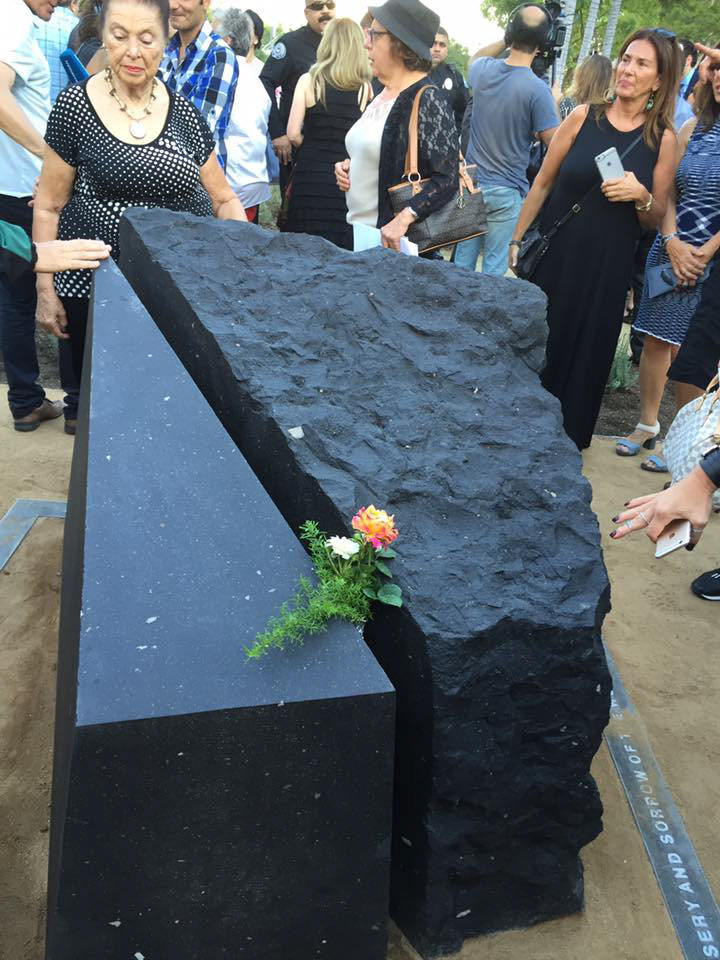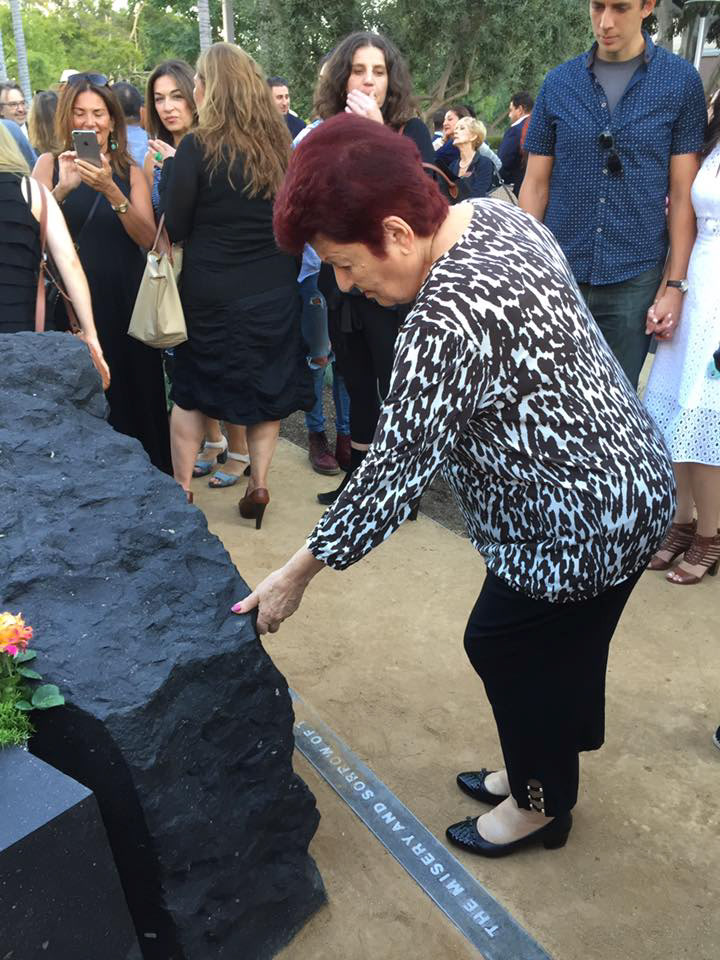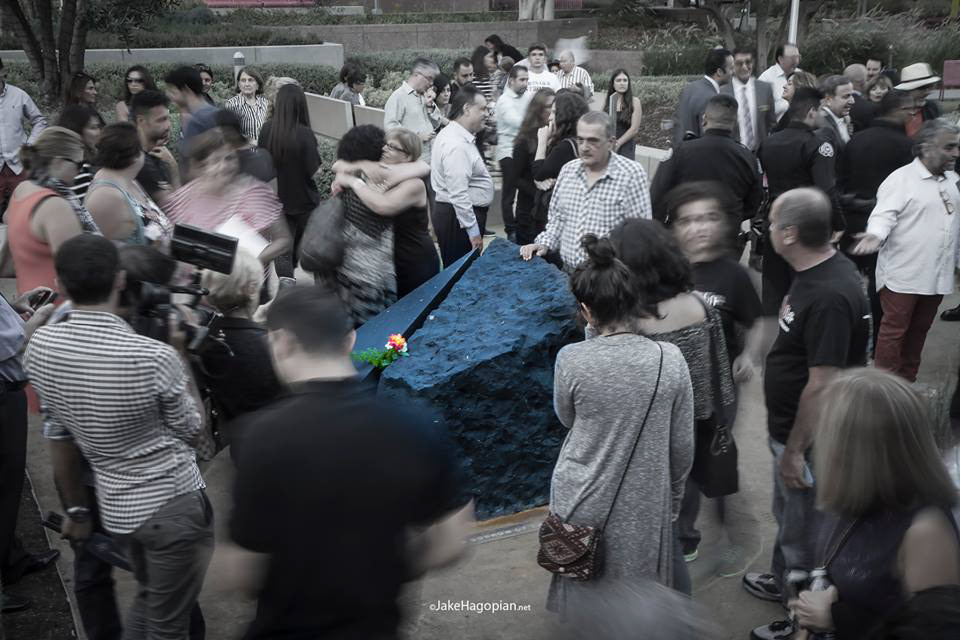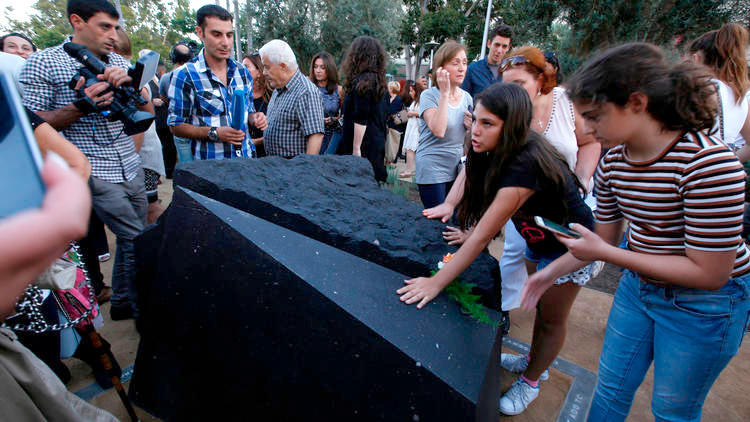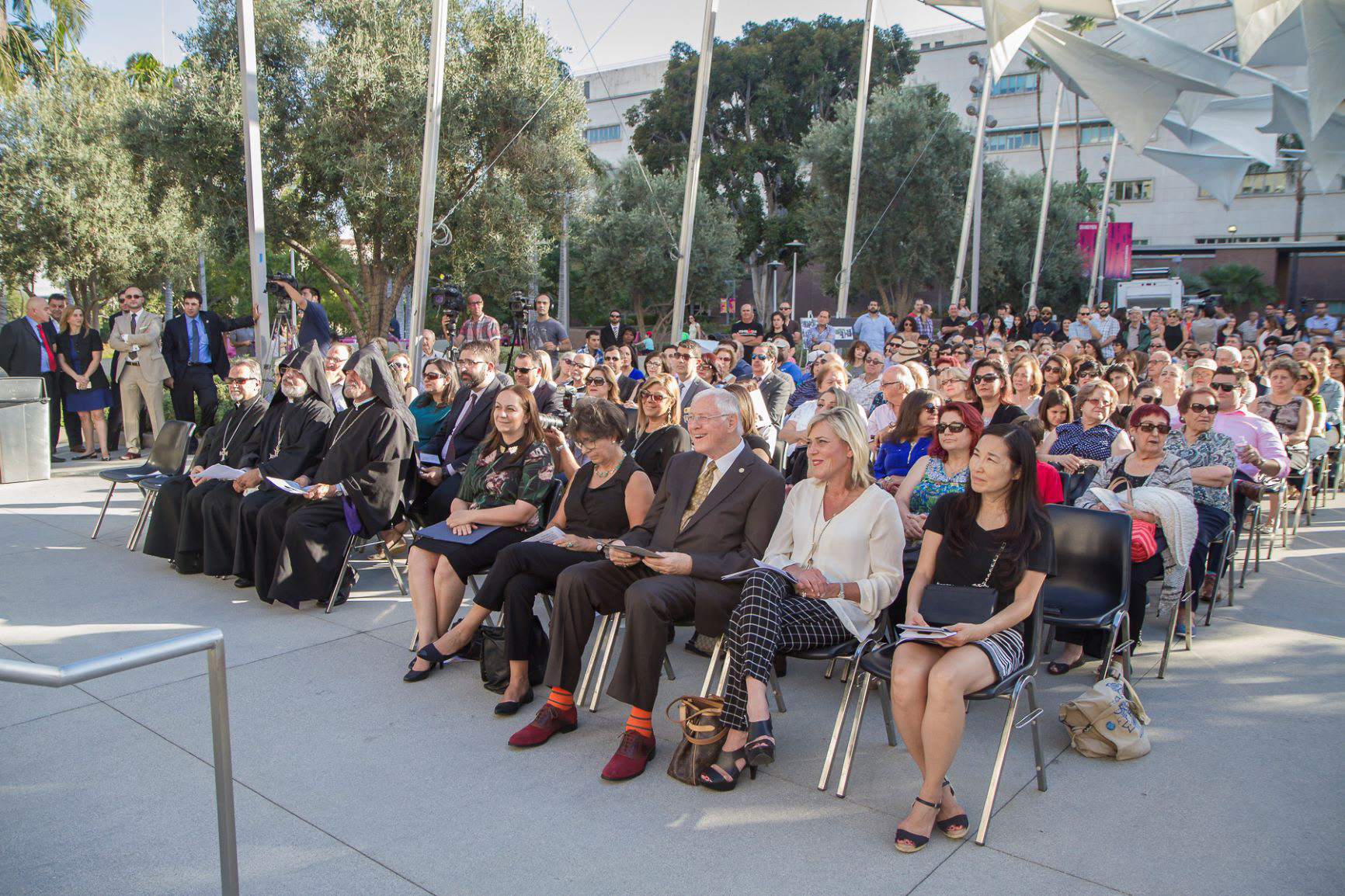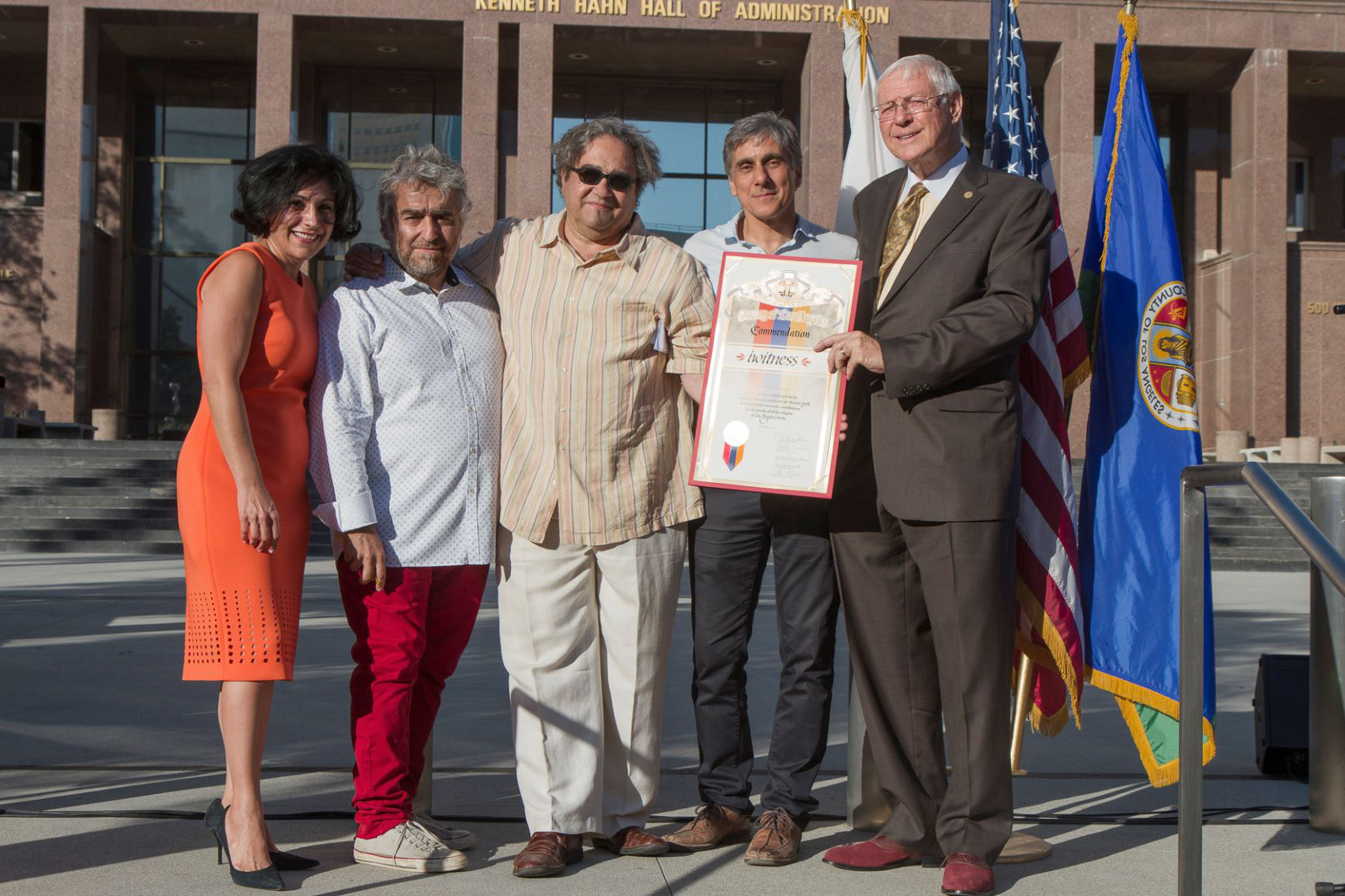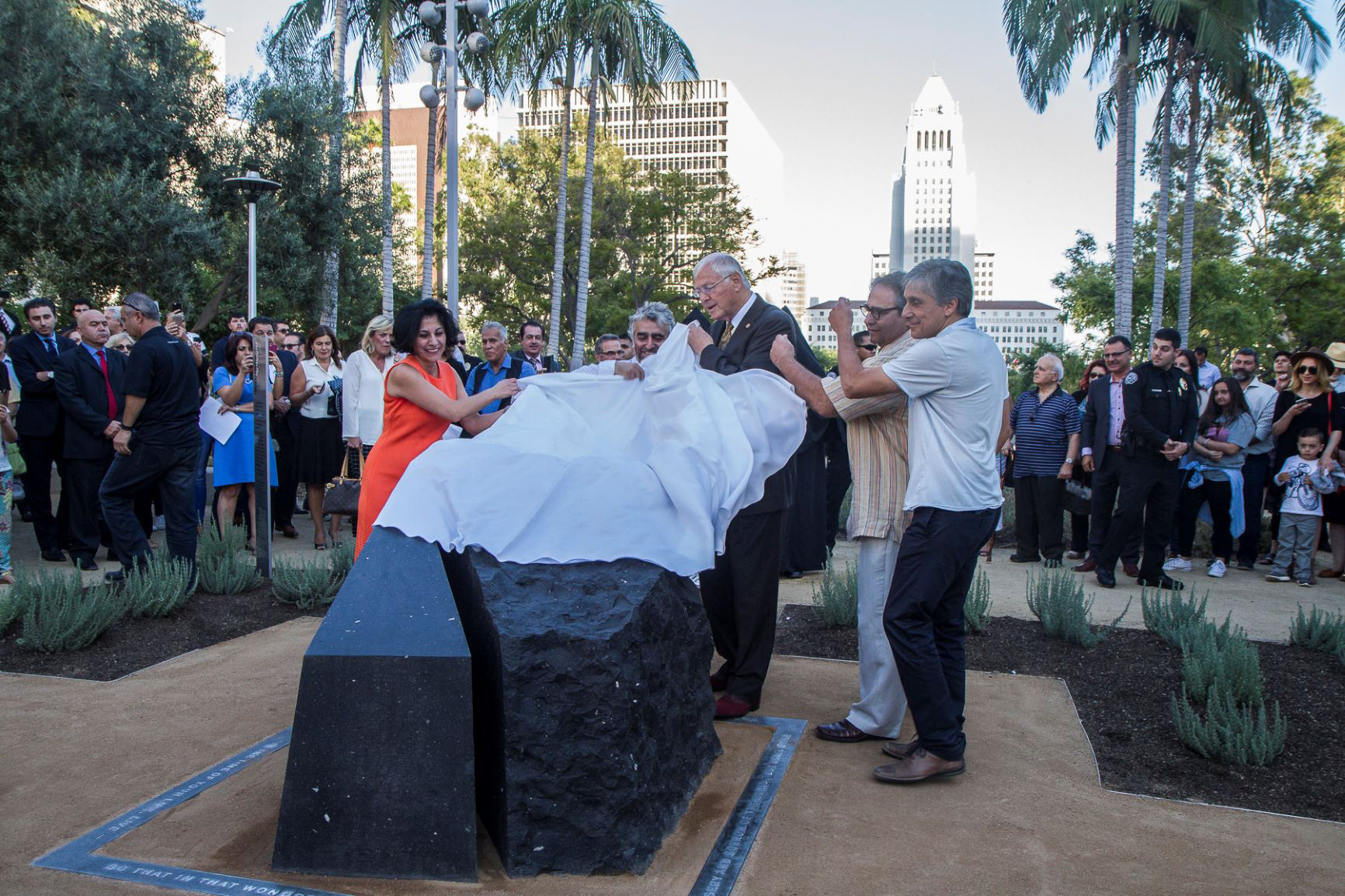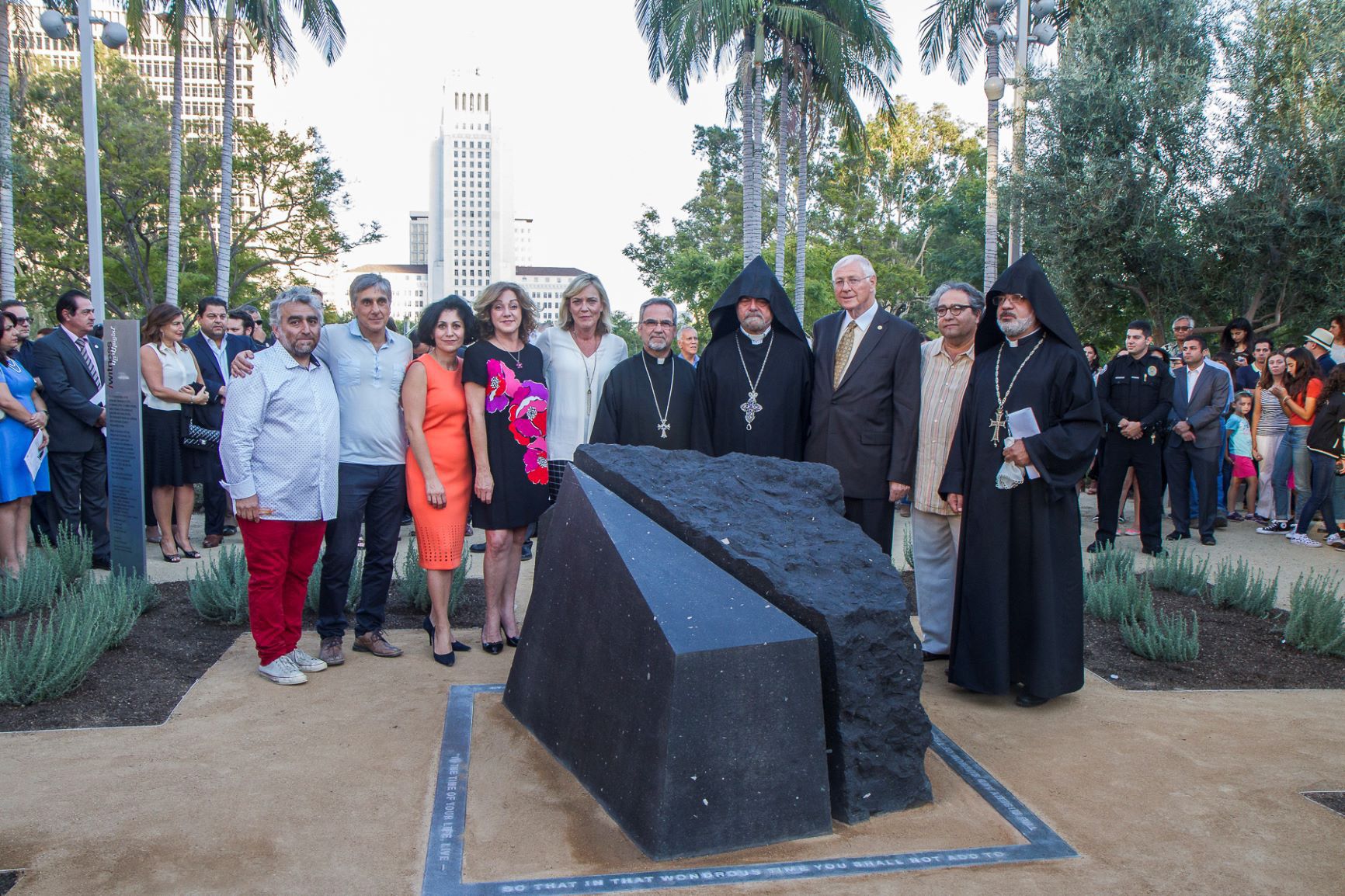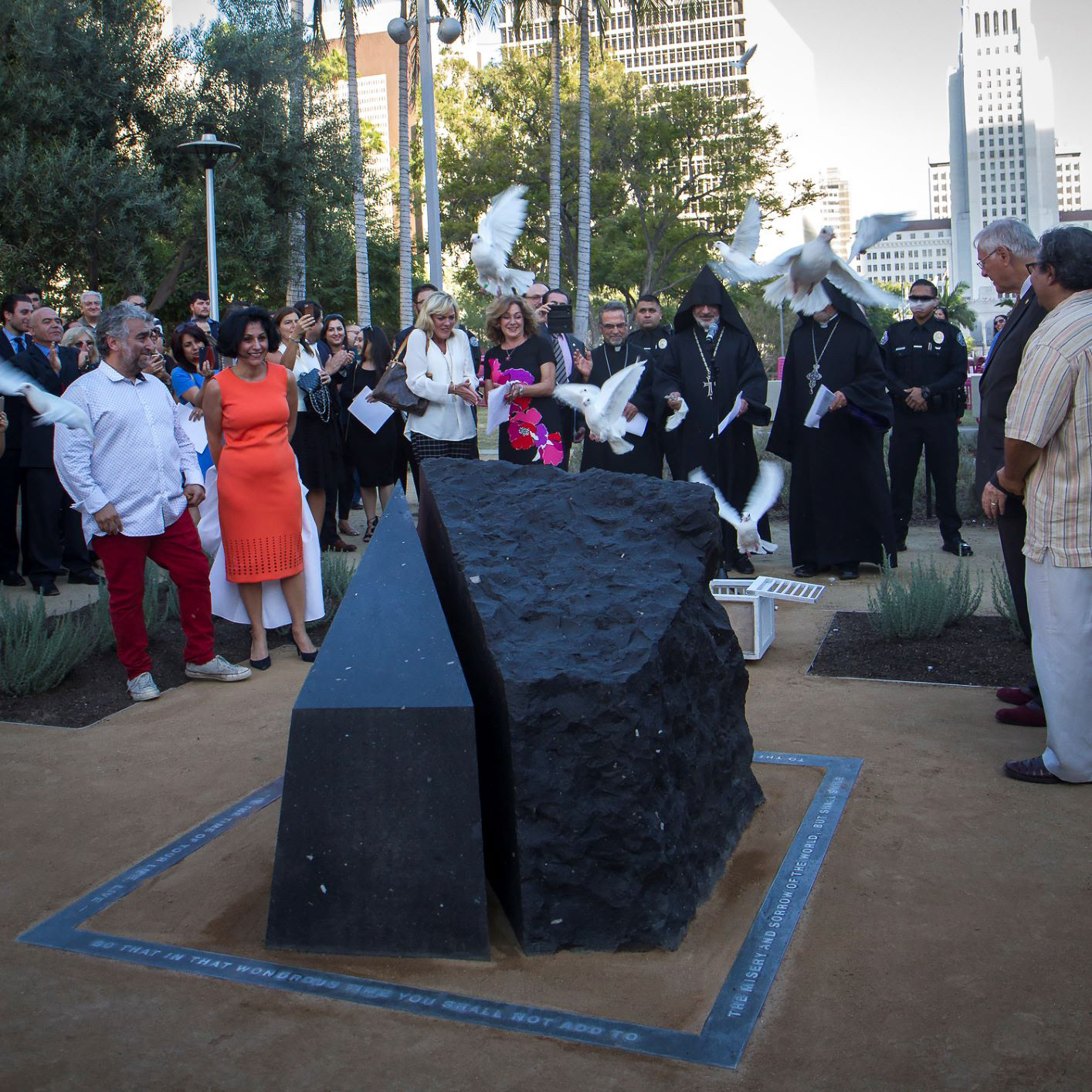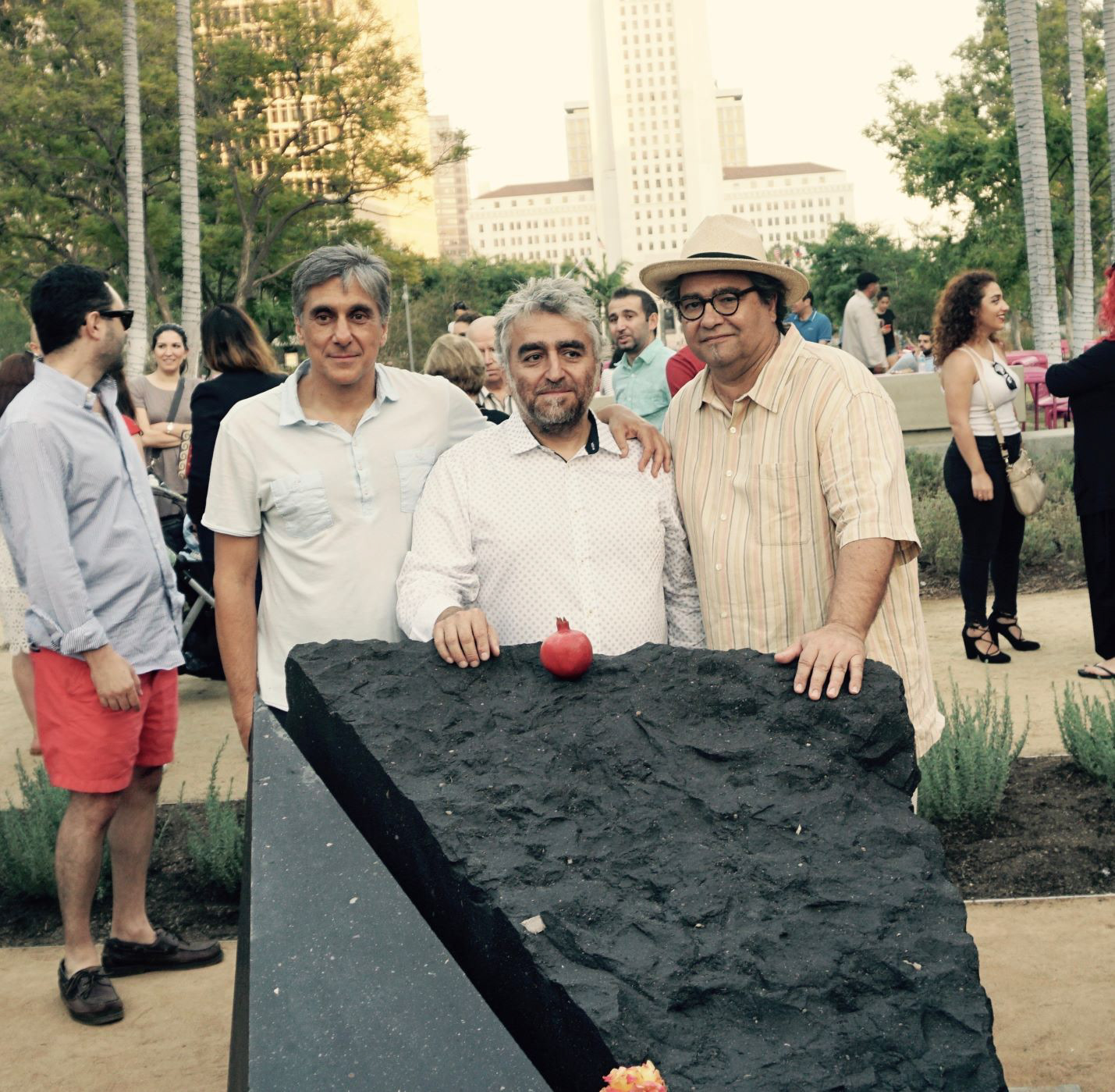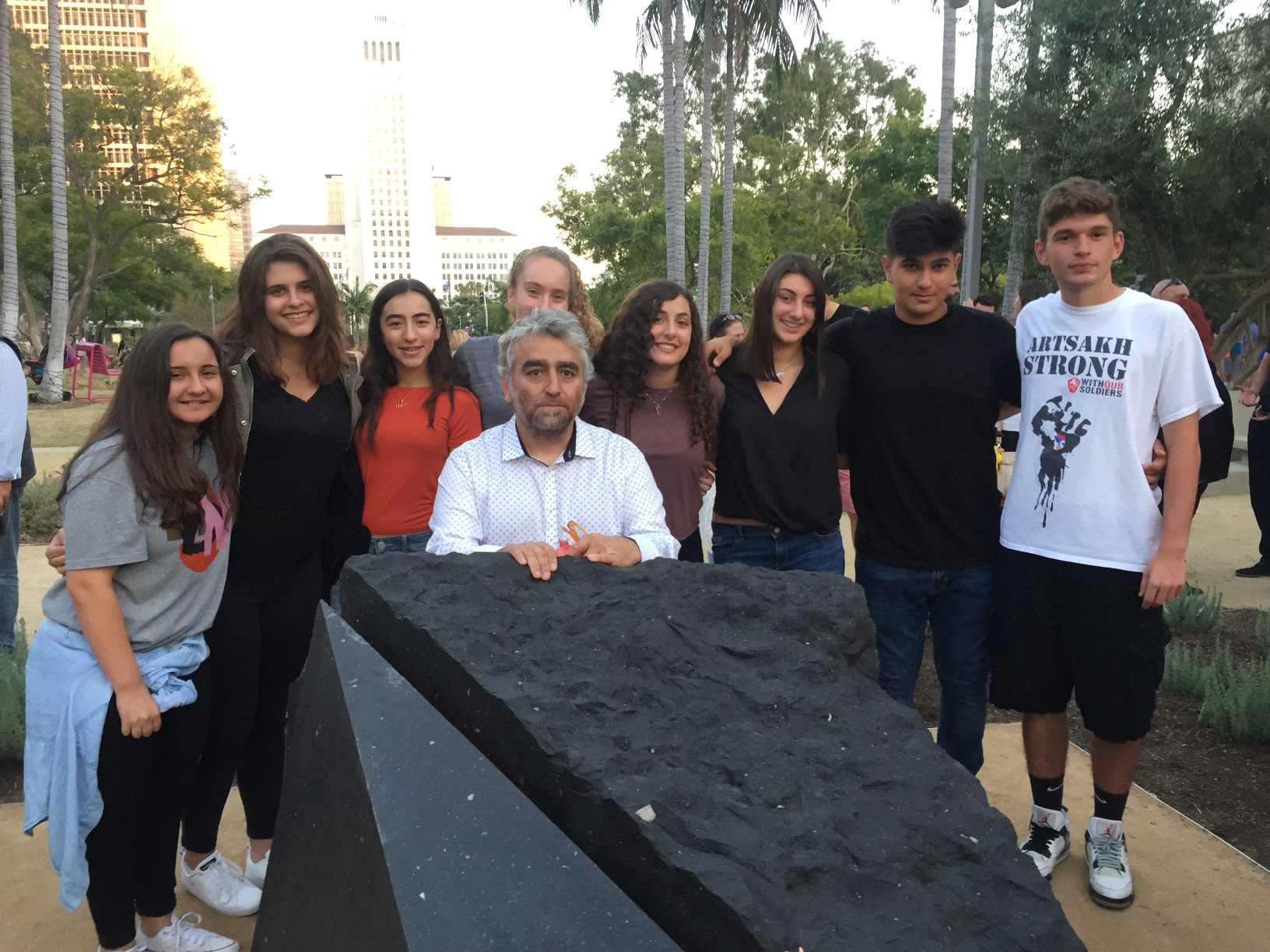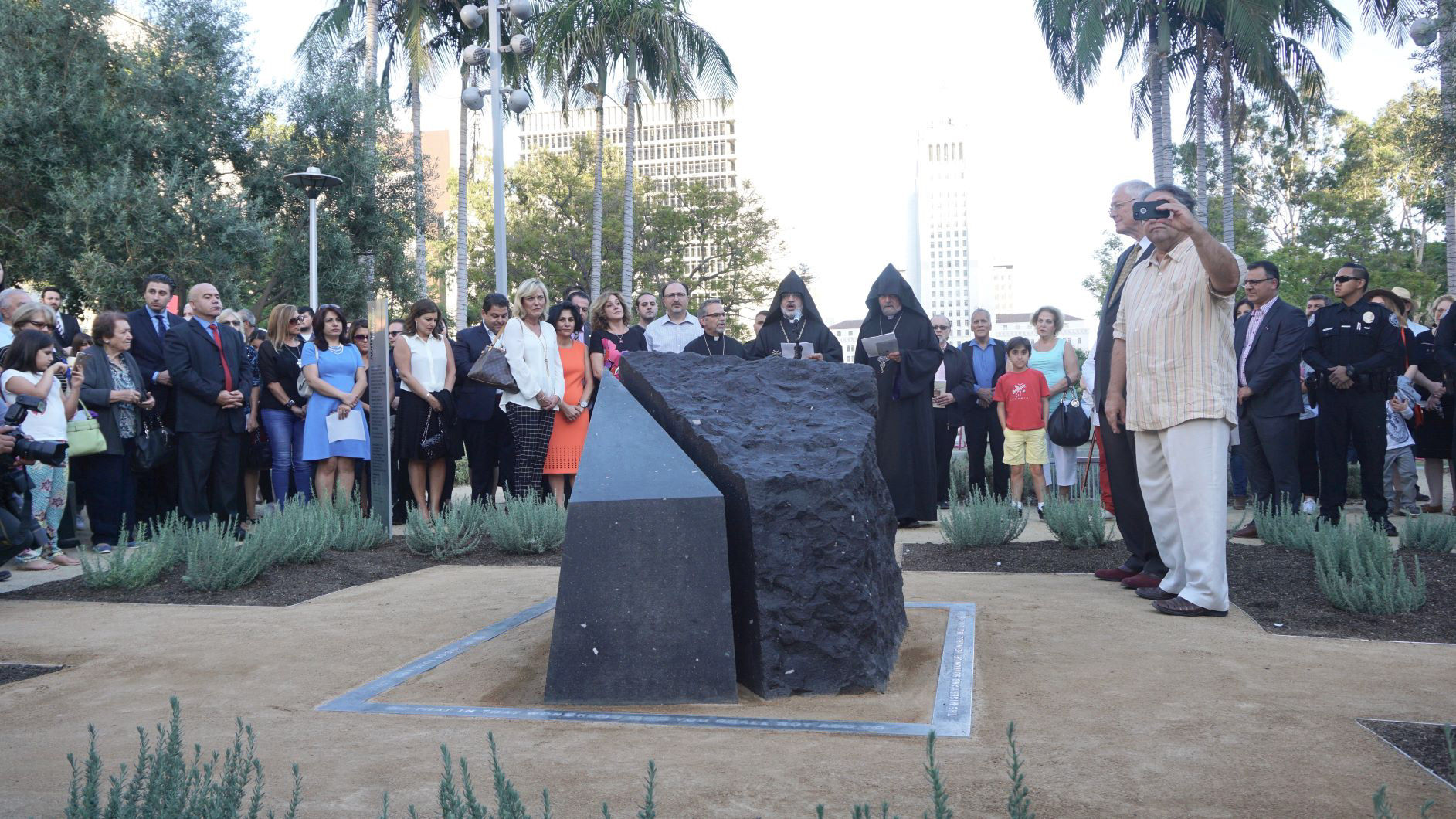Artists & Activists: Ara Oshagan, Leovn Parian, Vahagn Thomasian, Anahid Oshagan
Sculptor: Vahagn Thomasian
On September 17, 2016 at 5:00 Supervisor Michael D. Antonovich officially unveiled a permanent Armenian Genocide monument at Grand Park’s Olive Court. Last year, Supervisor Antonovich sponsored the highly popular and well-received iwitness public art installation at Grand Park and the Music Center. Moved by the great response, LA County teamed-up with the iwitness project to install a permanent memorial to the Genocide. The unveiling included speakers and musical performances by Lark Musical Society, Alique from greenKARD and Ara Dabandjian and Soseh Aramouni from Element Band.
The iwitness project is a collective made up of artists Ara Oshagan, Levon Parian, architect Vahagn Thomasian, Anahid Oshagan and other activists and artists.
The permanent monument is made of black volcanic tuff rock imported directly from the Ararat Valley of Armenia. Tuff is indigenous to the Armenian highlands and deep-rooted in that millennial history. It has been the material of choice for centuries and used to build hundreds of churches, historical buildings and artworks. The monument is a silent witness to that history as well as a witness to the Genocide itself. The sculpted angular shape of the iwitness monument is an echo and extension of the iwitness installation.
“This remarkable memorial honors the 1.5 million victims of the Armenian Genocide and offers a space for contemplation and reflection,” said Supervisor Antonovich. “I’m thrilled to have this monument in Grand Park where people from diverse backgrounds gather to celebrate and reflect in this urban oasis. It’s a natural fit.”
Sculpted by Vahagn Thomasian, the monument is both organic and conceptual. It is sourced from the earth itself and blends in with the natural flora and fauna of Grand Park. The monument is split in two, symbolizing the spiritual and physical rupture of the Armenian Genocide: a disruption of history and community not only for the Armenian nation but also for all of humanity.
“The idea that a rock can be a witness is perhaps unusual but very significant”, says artist Ara Oshagan. “It was there and that history is imbedded in it. A witness need not speak to be a witness. Just like the trees around Auschwitz are witnesses to the Holocaust.”
The juxtaposition of smooth and rough surfaces on either half of the iwitness monument further symbolizes the past and the present and re-emphasizes the disruption between the two realities.
“The monument is sculpted at 4, 24, 19, 15 degrees symbolizing the date of April 24, 1915,” said architect and designer Vahagn Thomasian. “The monument has meaning at every level of its conceptualization and construction.”
April 24 is the infamous day the Ottoman Turks began their systematic annihilation of the Armenian people. Armenians worldwide annually commemorate April 24 with memorials, vigils, marches, protests and demands for recognition of the Armenian Genocide, which the present Turkish government continues to deny.
Wrapped around the foot of the iwitness memorial are words by the Pulitzer Prize winning Armenian-American playwright and author, William Saroyan—urging a celebration of life and hope for the future.
“This is a memorial to a horrible event,” says artist Levon Parian, “but Saroyan’s words elevate and remind us of the mysteries and joys of being alive. We remember the past, but live in the today- reaching for the future.”
Support for the monument also came from the Sarkisov Family Foundation.

